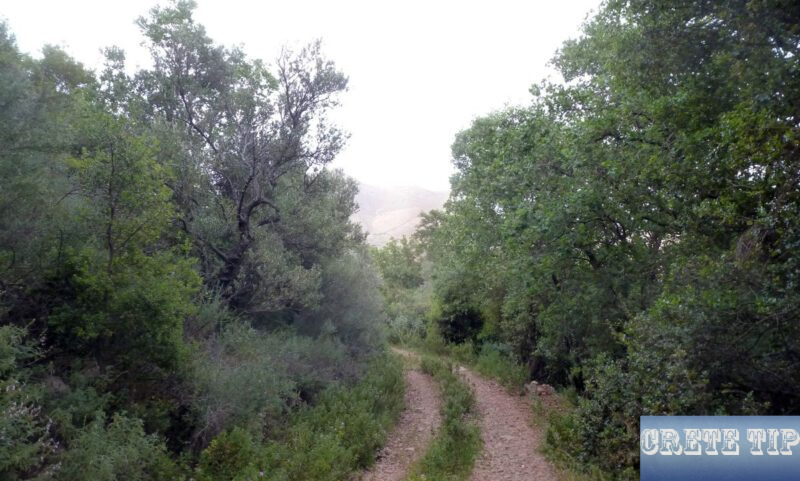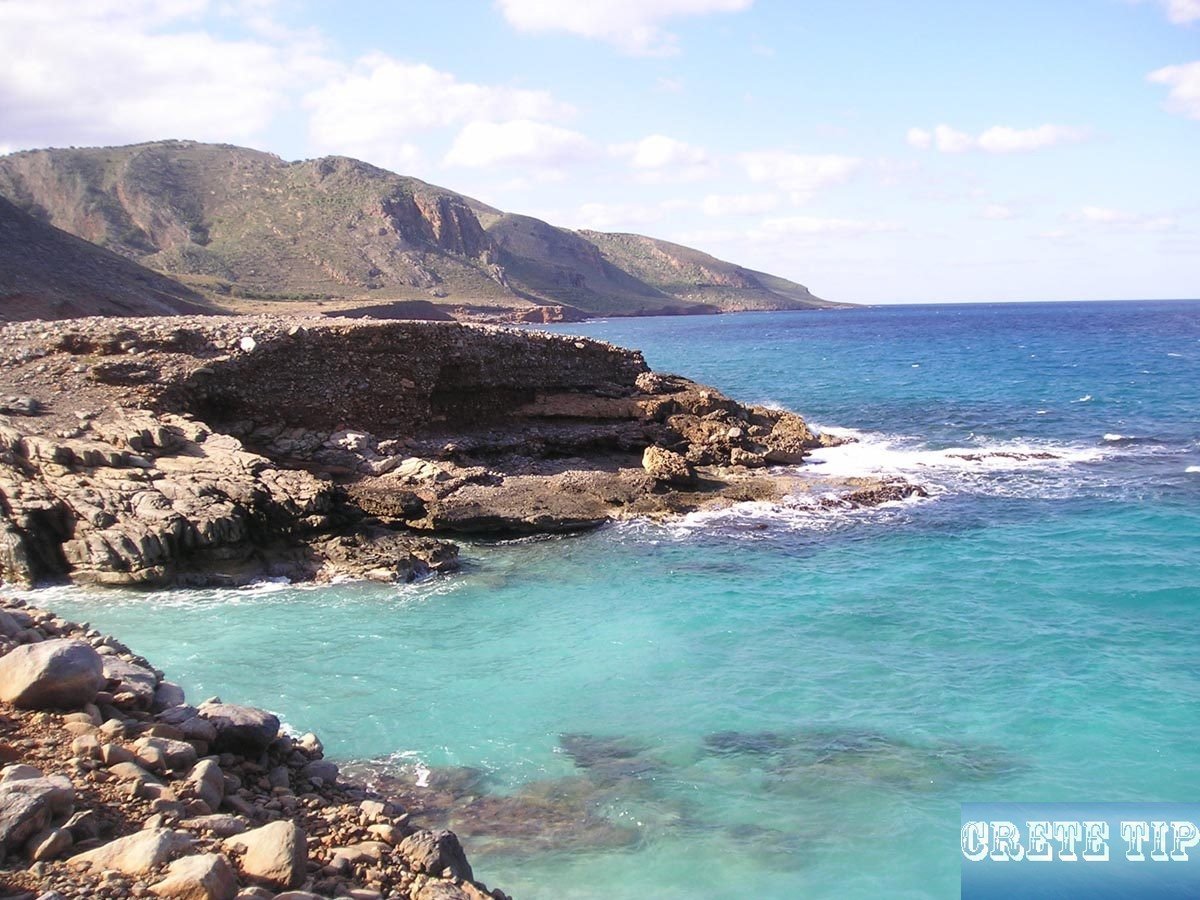Crete is Facing Major Challenges Due to the Impact of Climate Change on Tourism: An Urgent Situation for the Island.

Crete is Facing Major Challenges Due to the Impact of Climate Change on Tourism
Tourism and Climate Change
The tourism sector contributes significantly to economic activities but is also highly vulnerable to climate change. Rising global temperatures and changing weather patterns impact various tourism destinations, especially those relying on nature-based tourism and outdoor activities. Coastal regions face risks such as coastal erosion, higher sea levels, and increased frequency of extreme weather events. These changes necessitate new strategies and adaptation measures to ensure the sustainability of tourism hotspots.
Challenges in Greece
Greece, with its extensive coastline and diverse landscapes, is one of the countries most affected by climate change. The effects include droughts, unpredictable rainfall, and the increased occurrence of wildfires. These issues pose a threat to coastal tourism and other nature-based tourism activities, impacting both local economies and biodiversity. The country must adopt sustainable tourism practices and enhance its resilience to these changes.
Sustainable Practices
In response to climate challenges, tourism stakeholders are exploring sustainable practices. This includes shifting towards renewable energy sources, improving water management, and adopting eco-friendly operational methods. Policymakers and tourism operators must work together to develop comprehensive strategies that promote sustainable development.
Renewable Energy in Tourism
Efforts to integrate renewable energy into tourism operations are gaining momentum. This shift not only reduces the carbon footprint of the sector but also decreases dependency on non-renewable sources. For instance, regions like Crete are investing in renewable energy projects to create a more sustainable tourism model. Challenges remain, especially in terms of coordination among numerous stakeholders and managing the project’s complexity.

Water Management
Water management is another critical aspect, particularly in areas facing water stress. Efficient rainwater harvesting and wastewater recycling are essential for ensuring an adequate water supply for both residents and tourists. Adopting these practices reduces the adverse impacts on ecosystems and improves overall resilience.
Policy and Adaptation
Governments and local authorities play a pivotal role in formulating and implementing policies that facilitate climate adaptation. Effective destination management should include infrastructure improvements, such as enhancing protective barriers along coasts and investing in public transportation to reduce emissions from private vehicles. Cooperation between local authorities, the private sector, and communities is crucial for successful implementation.
Impact on Agriculture
The agricultural sector linked to tourism, especially in rural destinations, faces threats due to changing climatic conditions. Unpredictable mean temperatures and precipitation patterns can impact crop yields, affecting local food supplies and culinary tourism. Diversifying crops and adopting sustainable agricultural practices can help mitigate these effects.
Science and Research
Continuous research is vital for understanding and addressing the impacts of climate change on tourism. Studies on the effects of increased temperatures, changing wind patterns, and biological diversity provide insights for developing better mitigation and adaptation strategies. Tourism scholars play a critical role in this, offering innovative solutions and influencing policy.
Mitigation Measures
Mitigation measures in tourism often involve reducing greenhouse gas emissions through improved transportation methods, such as promoting aviation efficiency and public transport. Encouraging tourists to engage in low-impact activities and adopting energy-efficient practices are also key strategies.
Adaptation Strategies in Europe
Various European countries are formulating strategies to adapt their tourism sectors to climate change. For example, the implementation of sustainable tourism projects and eco-friendly policies helps buffer the impacts of climate change. These measures include promoting off-peak travel to reduce the pressure on destinations and preserve natural resources.
Tackling Extreme Weather Events
Extreme weather events, such as heatwaves and flooding, pose significant risks to tourism infrastructure and visitor safety. Investing in early warning systems and strengthening emergency response capabilities are essential steps in reducing these risks. Infrastructure should be designed to withstand such events and ensure visitor safety.
Biodiversity and Ecosystems
Protecting biodiversity and ecosystems is crucial for maintaining the attractiveness of tourism destinations. Efforts to conserve natural habitats and reduce pollution contribute to a healthy environment, which is vital for nature-based tourism. Policies focusing on preserving wetlands, forests, and marine areas help sustain the natural beauty that attracts tourists.

Role of Stakeholders
Stakeholders from various sectors, including government, tourism operators, and local communities, must collaborate to tackle climate change impacts. Effective management practices and shared responsibility are keys to developing resilient tourism systems. Continuous dialogue among these groups facilitates the implementation of sustainable practices.
Risk Management
Implementing risk management strategies helps tourism destinations prepare for and respond to climate-related challenges. This includes conducting risk assessments, developing contingency plans, and regularly updating safety protocols. Insurance can also play a role in mitigating financial losses due to natural disasters and extreme weather events.
Increasing Awareness
Raising awareness about the impacts of climate change on tourism is essential. Educating both tourists and industry professionals about sustainable practices encourages responsible behavior. Campaigns highlighting eco-friendly tourism options can shift consumer preferences towards more sustainable choices.
Innovation and Technology
Innovative technologies can aid in mitigating the impacts of climate change on tourism. Smart grid systems, solar power, and energy-efficient designs reduce operational costs and emissions. Advances in weather forecasting and climate modeling also provide critical data for planning and adaptation.
Economic Considerations
While sustainable tourism practices may initially require significant investment, the long-term economic benefits are substantial. Reducing reliance on non-renewable resources and minimizing environmental impacts can lead to a more stable and profitable tourism sector. Additionally, sustainable tourism attracts a growing segment of eco-conscious travellers, boosting revenue.
Coastal and Mountain Tourism
Regions known for their coastal tourism and mountain attractions face distinct challenges. Coastal areas are particularly vulnerable to storm surges and erosion, while mountain regions may experience changing snow patterns and increased risks of landslides. Adapting to these specific challenges is crucial for maintaining their appeal to tourists.

Tourism Industry Resilience Post-COVID-19
The COVID-19 pandemic highlighted the need for resilience in the tourism industry. Recovery strategies should integrate climate adaptation measures to build stronger, more resilient tourism systems. Enhancing local supply chains and promoting domestic tourism can buffer against future global disruptions.

Collaboration with Policymakers
Collaboration with policymakers is essential for aligning tourism practices with broader climate goals. Policies should incentivise sustainable practices, support renewable energy projects, and promote conservation efforts. Comprehensive climate policies need input from all tourism stakeholders to ensure they are practical and effective.
Addressing Water Stress
Tourism regions facing water stress must address this issue to ensure sustainability. Implementing water-saving technologies and practices, such as efficient irrigation in landscaped areas and encouraging water conservation among tourists, helps mitigate these challenges.
Reshaping Tourism Landscapes
The tourism sector must evolve by adopting new models that prioritise sustainability and resilience. Embracing eco-tourism and developing infrastructure that minimises environmental impact will help reshape tourism landscapes to meet future needs.
Key Areas |
Impacts & Actions |
|---|---|
Coastal Tourism |
Erosion, sea-level rise, mitigation through protective barriers and sustainable practices |
Renewable Energy |
Decrease carbon footprint, increase renewable energy projects |
Water Management |
Address water stress, improve rainwater harvesting, reuse wastewater |
Policy and Adaptation |
Develop comprehensive policies, strengthen infrastructures |
Ecosystem Protection |
Conserve natural habitats, promote biodiversity |
Summary of Strategic Actions
Implement Renewable Energy Projects
Tourism operators should adopt renewable energy sources such as solar and wind to reduce emissions and enhance sustainability.
Enhance Water Management Practices
Efficient water use, recycling, and harvesting rainwater are crucial for regions facing water stress.
Promote Eco-Friendly Practices
Adopting environmentally friendly materials and methods in construction and operations promotes sustainable tourism.
Strengthen Risk Management
Developing robust risk management plans and conducting regular assessments can mitigate the impacts of climate events.
Foster Collaboration
Ongoing dialogue and collaboration between government bodies, local communities, and tourism operators ensure the effective implementation of sustainability strategies.
Frequently Asked Questions
How is Climate Change Affecting Tourism Seasons in Crete?
Climate change is altering the weather in Crete, impacting the island’s peak tourist seasons. Increased temperatures and shifting precipitation patterns can shorten or extend traditional tourist periods, affecting visitor numbers.
What Actions are Being Taken in Crete to Reduce the Impact of Climate Change on Tourism?
Crete is implementing various measures to combat climate change effects on tourism. Investments in renewable energy, water conservation, and eco-friendly tourism practices are a few actions aimed at mitigating these impacts.
How Do Changing Weather Patterns in Greece Influence Tourist Activities in Crete?
Shifts in weather patterns affect outdoor activities vital for Crete’s tourism, such as beach visits, hiking, and sightseeing. For example, warmer temperatures and unusual rainfalls may disrupt these activities, necessitating adjustments in tourism planning.
How is Crete Modifying Its Infrastructure to Handle Climate Change?
Crete is adapting its infrastructure to better cope with climate change by upgrading coastal defences, improving water management systems, and developing sustainable transportation options. These changes aim to enhance resilience against environmental challenges.
What are the Economic Risks of Climate Change to Crete’s Tourism Industry?
The tourism sector in Crete is highly susceptible to climate change, posing significant economic risks. Reduced tourist numbers due to unseasonal weather can lead to a drop in revenues, affecting businesses dependent on tourism.
How Do Environmental Changes in Crete Influence Its Appeal as a Tourist Spot?
Environmental alterations caused by climate change can impact Crete’s attractiveness. Rising temperatures, sea-level changes, and extreme weather events can alter the island’s natural beauty, potentially deterring tourists who seek idyllic conditions.
Source: Rethnea.gr




Kalimera, climate change has also arrived in Crete for a few years …
Greece will find the effects of climate change even more clearly in the next few years. This conclusion comes to the professor of climatology at the Kapodistrias University of Athens, Panagiotis Nastos. The changes in this area would progress at an increasingly rapid pace.
In recent years, an extreme weather phenomenon has followed the other: more devastating forest fires, heat records in midsummer, top temperatures partly until late into autumn, but also unexpectedly violent snowfall.
Our beautiful and beloved island of Crete is unfortunately increasingly being built up and destroyed (luxury resorts, new airport, new construction of a motorway/streets, wind farms, cruise tourism, Airbnb, etc.).
I believe that the upper limit for tourists in Crete has long been reached or exceeded, and Crete can no longer tolerate tourists, new 5 star hotels and luxury resorts.
Instead of higher tourists and all-inclusive mass tourism, the regional government of Crete should rely on a gentle sustainable ecological tourism.
Many greetings from Hamburg, kv